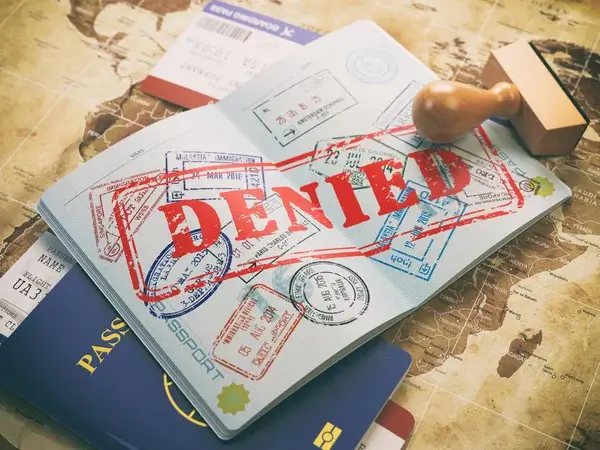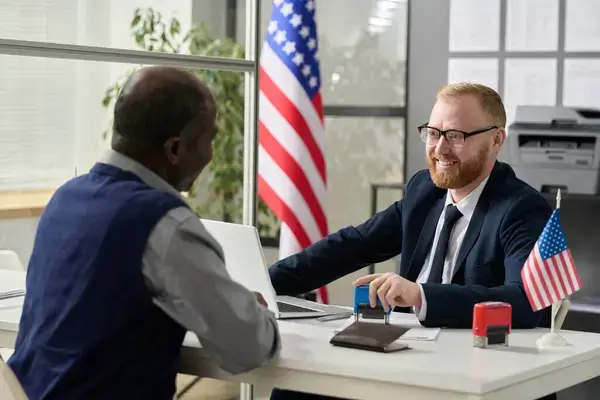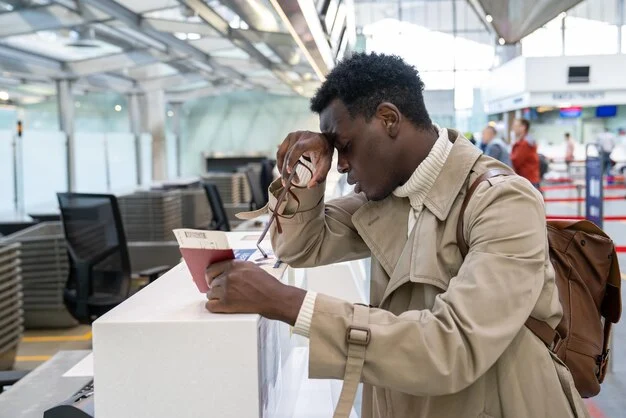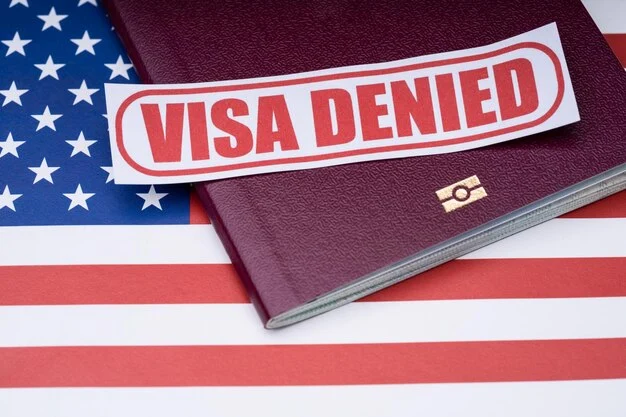As someone who travels or is looking to travel at a point, it is important to necessary the main purpose of visa. A visa plays an important role in the travel process, although there may be some exceptions. Nonetheless, visas show that a traveler has met the requirements to access to a foreign country.
Are you confused about the importance of a visa? Or are you looking to travel soon or trying to get clarity on the requirements? Well, you have come to the right place. In my 2 years of experience in the travel industry, I have met several people with the same or similar questions about travel visas.
In this blog post, I will shed light on the purpose of visas based on my years of experience in the travel industry. I will help you understand why visas are essential for international travel. At the end of this blog post, you will clearly understand the role visas play in the travel process. Without further ado, let’s get into it.
What is the Main Purpose of Visa?
Visas are a document that gives someone permission to access a country. It also indicates the amount of time this person will be staying in the country and the reason for the visit. Visas ensure that a traveler obeys immigration laws, and it ensures that countries are safe and secure from any from of external threat. It is usually issued to the traveler by the host country’s government.
A visa makes sure that anyone immigrating meets particular conditions that have been set by the host country, such as proof of funds, proof of home ties, and a legitimate travel purpose. Due to these conditions, visas help ensure that a country is secure and manage the number of people accessing a country at any given time.
Why are Visas Necessary?
Visas are important to manage the inflow or immigrants, and ensure that all immigrants comply with immigration laws. It allows the immigration officials in figuring out why you want access to their country and if your reason is legitimate, then you’ll be granted access. Like a screening tool for an assessment for a job or an institution, its mandatory for almost every traveler. “Almost” because there are some countries with arrangements permitting specific foreign country citizens to gain access without a travel visa, such as US and Canada citizens.
How do Visas Contribute to International Travel Regulations?
Visas play a vital role in international travel regulations by offering a clear and standardized way for countries to manage who enters their borders. Think of them as your passport’s sidekick, helping ensure smooth and safe journeys.
Visa restrictions allow countries to enforce their immigration laws while also keeping track of who’s coming in and out. Plus, they make it easier for different countries to work together by setting clear rules for visitors. So, next time you travel, remember that visas aren’t just stamps in your passport, they also help countries stay safe and secure.
What Does Travel Visa-Free Mean?
Visa-free travel options enable you to skip the visa headaches and dive straight into your adventures. It allows travelers to move freely across borders with their passports. They make travel easier and more affordable, encouraging more people to explore the world. Plus, they’re convenient for us and help countries welcome more visitors and make friends across borders. Next time you’re planning a trip, keep an eye out for those visa-free options and get ready for some unforgettable experiences! *
What Different Types of Visas are there?
There are different types of visa and they serve specific purposes. Here’s a list of different types of visas:
- Tourist Visa: This visa allows travelers to visit a country for leisure, usually for a short duration.
- Business Visa: This allows businessmen, employees, and entrepreneurs to travel for meetings, conferences, etc. It is also usually for a short duration
- Student Visa: As the name implies, this allows students to study in a recognized institution in a foreign country, and it usually expires after study.
- Work Visa: This gives travelers the authority to work in a foreign country. Some may allow you to work for any employer in the country while others will mandate you to work for a specific employer.
- Transit Visa: This visa is a requirement for travelers who are passing through a country before arriving at their destination.
- Family Visa: This type of visa allows family members to reunite with their relatives who have been residing abroad for a while.
- Diplomatic/Official Visa: This type of visa is given for official purposes. It is usually issued to government officials or other representatives.
Each type of visa has its specific eligibility criteria, application process, and duration of stay, for different travel reasons.
How do visa requirements vary between countries?
Visa requirements vary between countries due to factors like diplomatic relations, security considerations, and immigration policies. Some nations have agreements allowing visa-free entry – for example, Nigerians can travel visa-free to countries like Kenya, Liberia, Senegal, Ivory Coast, and others. Some nations also have agreements for citizens to get visas on arrival, while others require a formal visa application process which is the case for many countries.
The type of visa and its conditions, such as duration and permitted activities, also differ depending on the purpose of travel. Understanding these variations is crucial for travelers to comply with entry regulations and ensure a seamless journey to their destination. Researching and adhering to specific visa requirements is essential for hassle-free travel experiences.
What Role do Visas Play in Ensuring National Security?
Visas play a role in keeping our countries safe while welcoming visitors from around the world. Think of them as a security checkpoint before anyone enters a country. They help authorities check people’s backgrounds, fingerprints, and other information to ensure they’re not a threat.
By providing this vital info, visas help border officials decide who can come in and who might need more scrutiny. Plus, they help keep track of who’s entering and leaving, making our borders more secure. So, next time you see a visa stamp, know that it’s not just about travel – it’s about keeping countries secure.
Does Every Country Have Different Visa?
Visa application processes can vary significantly depending on the destination country and the purpose of travel. Here’s how:
- Requirements: Each country has its specific visa requirements, including documentation, forms, and supporting materials. These may vary based on factors such as nationality, purpose of travel, and visa type.
- Application Methods: The methods for submitting visa applications can differ, ranging from online applications to in-person submissions at embassies or visa application centers. Some countries also accept visa applications through third-party service providers.
- Processing Time: The time it takes to process a visa application varies between countries and visa types. Some countries offer expedited processing options for an additional fee, while others may have longer processing times.
- Fees: Visa application fees vary depending on the destination country, visa type, and applicant’s nationality. These fees may cover administrative costs, processing fees, and visa issuance fees.
- Interview Requirements: Some countries require applicants to attend an interview as part of the visa application process, while others may waive this requirement depending on the visa type and applicant’s circumstances.
Overall, visa application processes differ for various countries based on their specific requirements, methods, processing times, fees, and interview requirements. Also, bear in mind that not everyone requires a visa to travel as some countries have visa-free arrangements. It’s essential for travelers to research, and understand the visa application process for their intended destination to ensure a smooth and successful application experience.
What are the Advantages of a Multi Visa?
A multi visa allows travelers to enter and exit a country several times within a given period. This offers the traveler flexibility and saves a lot of time, and money. For instance, entrepreneurs who travel for meetings regularly would benefit from this type of visa. For people looking to travel for leisure, this type of visa allows them to visit different destinations within a region without worrying about any additional application process. Overall, obtaining a multiple-entry visa makes your travel hasslefree, allowing you to visit a destination multiple times without going through time-consuming travel application process.
What is the Full Meaning of Visa
The full meaning of Visa is “Visitors International Stay Admission”. It usually comes as a form of endorsement or stamp in your passport. As explained earlier in this blog, a visa is an official document given to a traveler by the government of your destination country. It allows you to legally access the country for a particular duration of time. It indicates that the bearer meets the requirements set by the destination’s government such as home ties, proof of funds, and duration of stay among other requirements.
How Can I Increase my Chance of Getting a US Visa
You can increase your chances of getting a US Visa by following these tips:
- Ensure that you understand the type of visa that you’re required to apply for. In the US, Visa types include the F1, B1/B2, L1, and many others. Make sure you’re clear on the one you’re applying for.
- After figuring out the type of visa you’re applying for, the next steps is to understand the requirements of that particular visa and gather the necessary documents for application such as your valid passport, proof of funds (a bank statement, etc), visa application form, and so on.
- If your visa requires an interview, then prepare for your interview by going through this guide, as well as other resources online
- You need to show strong indicators that will prove that you will return to your home country after you visit the U.S., e.g. employment, property ownership, family connections, etc.
- Indicate your reasons for visiting the U.S. and show some proof of this in the form of supporting documents, itinerary, invitation letters, e.t.c.
- Truthfully answer all questions during your visa interview. Lying will most likely get your visa denied.
- Reach out to professionals like immigration consultants or immigration lawyers if you have a complex case or need further assistance.
By following these tips and adequately preparing for the visa application process, your chances of getting your visa approved increases. Also check this aritcle out, for how to avoid Visa rejection in 2024.
Why do Visas Get Denied?

There are several reasons why someone might be denied a visa:
- Incomplete Application or Supporting Documentation: If you fail to provide all the needed documents or information, your visa may be denied.
- Lack of Strong Ties to Home Country: If the visa officer believes that you don’t have sufficient ties to your home country, such as stable employment, family connections, or property ownership, they may deny the visa due to concerns about the applicant’s intent to return home after their visit.
- Criminal Record: If you have a history of criminal activities against you, it can lead to visa denial, especially if the offense is considered serious or involves ethical misconduct.
- Previous Visa Violations: Past violations of visa or immigration laws, such as overstaying a previous visa or being deported from a country, can result in visa denial.
- Security Concerns: Visa applications may be denied due to security concerns, such as suspected involvement in terrorist activities, or other threats to national security.
- Lack of funds: If you cannot demonstrate that you have enough money to sustain yourself/family during your stay, your visa application may be denied.
- Inconsistent or Unconvincing Purpose of Travel: If the visa officer finds inconsistencies or doubts the applicant’s stated purpose of travel, they may deny the visa.
How do Visa Policies Impact Tourism and Economic Development?
Visa policies have a significant effect on the tourism industry of a particular country. When the visa processes are simple, this encourages tourists by making it easier for travelers to visit a country. It’s even better when there are visa-free arrangements between countries. Good visa policies also encourage foreign entrepreneurs to invest in a particular country.
How to Prepare for Visa Interview

Travelers can prepare for a visa interview and documentation requirements by following these steps:
- Research: Familiarize yourself with the visa application process and requirements specific to the country you plan to visit. Understand the types of visas available, required documentation, and interview procedures.
- Gather Required Documents: Ensure you have all the necessary documents for your visa application, such as a valid passport, visa application form, photographs, proof of financial means, travel itinerary, and supporting documents related to your purpose of travel.
- Practice Interview Questions: Prepare for the visa interview by practicing common interview questions and rehearsing your responses. Be ready to provide detailed and honest answers about your travel plans, purpose of visit, and ties to your home country.
- Dress Appropriately: Dress professionally and conservatively for the visa interview to make a good impression. Choose attire that is respectful and appropriate for the occasion.
- Arrive Early: Plan to arrive at the visa application center or embassy well ahead of your scheduled interview time. This allows for any unexpected delays and ensures you have sufficient time to complete any additional procedures or paperwork.
- Bring Original Documents: Carry original copies of all required documents to the visa interview. Be prepared to present these documents to the visa officer upon request.
- Be Honest and Confident: During the interview, answer all questions truthfully and confidently. Maintain eye contact, speak clearly, and express yourself in a calm and composed manner.
- Follow Instructions: Follow any instructions provided by the visa application center or embassy regarding the interview process, documentation requirements, and visa application procedures.
By thoroughly preparing for the visa interview and documentation requirements, travelers can increase their chances of a successful visa application and a memorable travel experience.
In conclusion, visas are important requirements for International travel. They indicate that you meet all requirements for traveling to a particular country while also ensuring the national security. If you’re in search of Visa requirements for a specific country, you can visit the official immigration website of the country, e.g. Canada’s immigration website. You can also consult professionals for personalized recommendations. If you have any comments or questions, feel free to comment below and I’ll respond promptly. I wish you the best in your travel.



